Is South Africa Safe? 10 Essential Travel Safety Tips
Just how safe is it to travel South Africa? From petty theft to serious crime, we asked our local travel expert Jacqui de Klerk to share her top travel safety tips for first-time visitors.
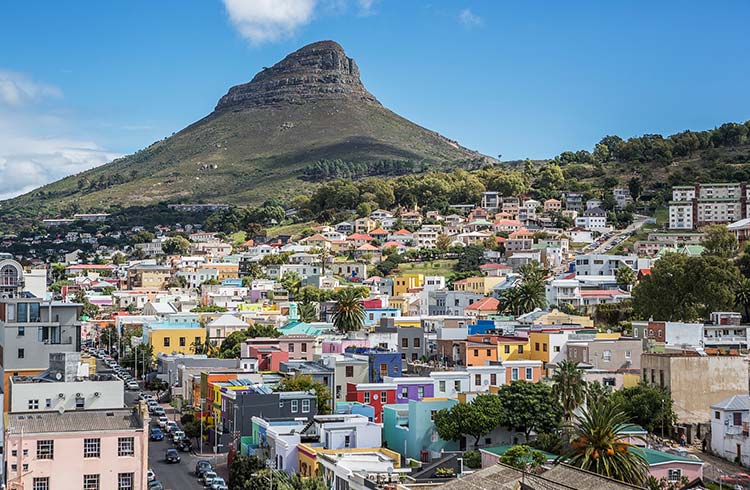 Photo © Getty Images/Johannes Mann
Photo © Getty Images/Johannes Mann
It's true, crime levels are high in South Africa. But, as a born-and-raised South African, I can tell you that the media doesn't always paint an accurate reflection of the safety situation that's relevant to travelers specifically. So, don't let the news or social media frighten you from visiting this unique destination.
If you keep these safety tips in mind, you will experience South Africa at its best.
- COVID-19 safety measures in South Africa
- How bad is crime in South Africa?
- Crime hot spots in South Africa
- Public transport safety
- Hiking safety
- LGBTQ+ travel safety
- Safety for solo women travelers
- Nightlife safety
- Politics and civil unrest
- Drug laws
COVID-19 safety measures in South Africa
A nationwide lockdown began in South Africa on 26 March 2020, based on a risk-based, five-level approach. It was considered one of the strictest lockdowns in the world. Not only were people told to stay at home, but the government also shut down all non-essential businesses and banned cigarettes, alcohol and outdoor exercise.
Since 21 September 2020, the country has been on Alert level 1, and most normal activities have resumed, with precautions and health guidelines in place. And, while new cases are identified on a daily basis, those who have contracted COVID-19 in South Africa have had a 90% recovery rate.
South Africa partially opened its borders to international tourists on 1 October 2020. However, travelers arriving from these high-risk countries will not be permitted.
While visiting South Africa, be aware of the following:
- To enter the country, you must have proof of a negative COVID-19 test (PCR) taken within 72 hours of your arrival. Without the test, you’ll be put into government-appointed quarantine at your own expense
- It’s mandatory to wear a face mask indoors and in all public places, except when doing vigorous exercise
- Countrywide, restaurant, supermarket, airports and hotel staff are required to wear face masks
- Hand sanitizers are widely available, and you must sanitize your hands before entering a restaurant, public building, shopping mall, etc
- Hotels, restaurants and bars can only operate at 50% capacity, so book ahead to make sure you get a room or a table
- Nightclubs are closed, and a curfew is in place from midnight to 4am
- Alcohol is only sold Monday to Friday between 9am and 5pm, excluding public holidays. You can buy alcoholic drinks from licensed restaurants and bars on the weekends
- You need to practice social distancing of 5ft (1.5m) in all public spaces, including beaches, public park, museums, galleries, and hiking trails.
How bad is crime in South Africa?
Recent years have seen a steady increase in crime in South Africa, both violent and non-violent in nature. According to the UK Government travel advisory, the majority of South Africa’s violent crime statistics come from the townships – the poor, densely populated neighborhoods on the outskirts of major cities.
Among the crimes to look out for during your stay:
- Minor theft, fraud, and scams
- Muggings and armed robbery are sadly common; theft is typically the motive
- Protests can turn violent, resulting in clashes with the local police, and people ending up injured or killed. South Africans hold protests frequently, and most remain peaceful
- Food and drink spiking have been reported, with victims often assaulted and robbed following the incident – always keep an eye on your drink while out, and never accept a drink from a stranger
- There have also been some reports of foreigners being carjacked.
Click here to read about common travel scams in South Africa.
Crime hot spots in South Africa
Perhaps more important than knowing the type of crimes committed in South Africa is knowing the areas where they're more likely to occur – that way, you can steer clear of troubled areas. The general rule of thumb is that crime increases when the sun goes down, particularly in the major cities.
Carjackings, however, can occur at any time of the day or night. When driving, always be aware of your surroundings and look out for any suspicious activity, especially at red traffic lights and highway off-ramps as this is where carjackings tend to happen.
If you’re driving late at night, slowly approach a red light, so by the time you reach the intersection, the light is green. Read our road safety tips here for more advice on driving in South Africa.
Townships in South Africa
Townships in general experience a higher crime rate than other areas, and while they're certainly not off-limits, it's recommended that you only explore them as a part of an organized tour group. Additionally, day or night, always avoid isolated picnic areas or beaches.
Johannesburg
If you're planning to visit Johannesburg, be aware of but not panicked by the high levels of crime in the city. Not all suburbs in Joburg are dangerous, though caution should be taken at night, when muggings are common, especially in the city center, so it's best not to walk anywhere.
Joubert Park, Hillbrow, and Berea are hot spots for criminal activity and are best avoided. However, other areas of Joburg, such as Vilakazi Street in Soweto, Maboneng and Newtown and have undergone a revitalization, and crime has reduced.
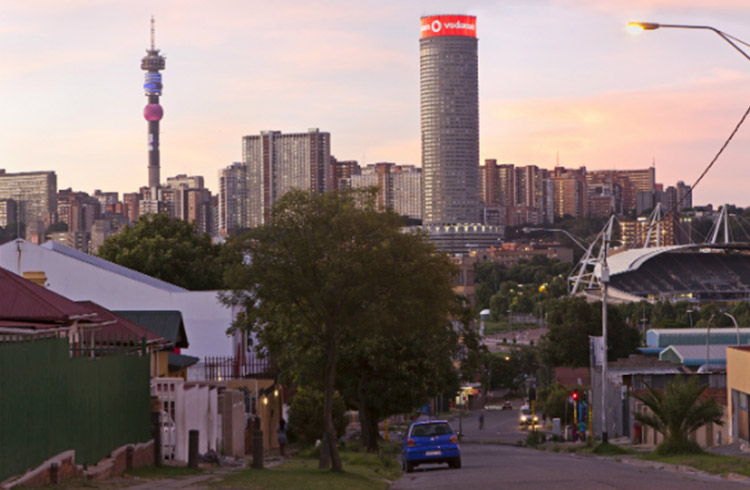
Cape Town
Cape Flats sees a large proportion of the crime in Cape Town, and gang violence has been on the rise. Salt River, Sea Point, Mowbray, and Observatory also tend to see more criminal activity than other areas.
Visitors are unlikely to visit Salt River or Mowbray, however, it is worth knowing these are not safe areas regardless. Watch out for scammers in the V&A Waterfront and pickpockets in the City Bowl. Sea Point’s promenade is popular among walkers and joggers and is generally a safe place to go – however, you should avoid walking here at night.
Most tourists do not visit Observatory, however, you may be interested in going here if you are looking for alternative live music venues with a bohemian cultural vibe.
If you're out at night, stick to the more crowded, well-lit locations, and don't walk alone.
Table Mountain is a favorite destination for hikers and outdoor adventurers however there have been multiple attacks, including muggings, on the trails. You're advised to avoid (or at least be extra vigilant in) the more deserted areas of the park, particularly during early morning hours and shortly before the park closes. Apply the safety-in-numbers theory, stay to the more popular trails, and stick with a group.
Durban
Be cautious while traveling in the city center, or better yet, avoid it altogether. Petty crimes such as pickpocketing and muggings are still a problem along the beachfront but have declined since the area's redevelopment, which first took place in 2010 for the FIFA World Cup, and again in 2019. Stay street-smart by remaining vigilant and sticking to well-lit areas at night. Instead of Durban’s city center, stick to the beachfront area and visit the promenade, Golden Mile Beach, and apply usual safety measures.
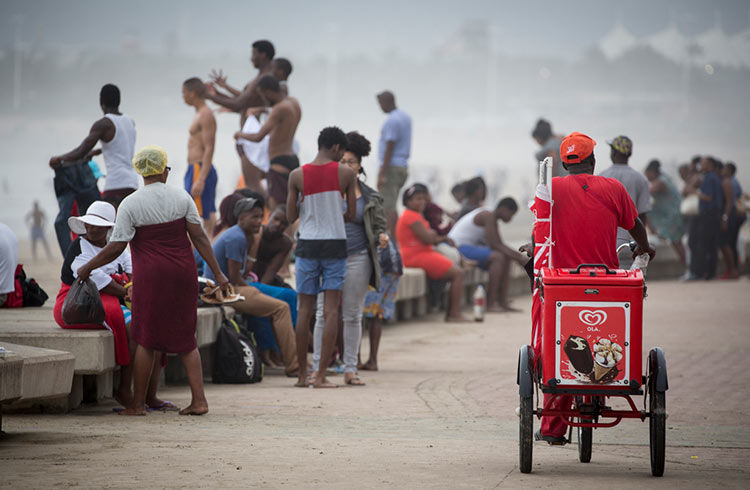
Public transport safety in South Africa
As with many destinations around the world, public transport facilities are often the scene of unwelcome criminal activity.
Johannesburg and Cape Town airports have experienced frequent luggage theft. Never place items of value in your checked luggage. If you have to, consider using a service that will wrap your baggage in plastic to keep it from being tampered with.
Criminals have also been known to wait outside the Johannesburg airport, then follow unsuspecting tourists to their accommodation to rob them. Pay close attention to your surroundings at all times, and whatever you do, don't accept a ride from the airport to wherever you are staying, unless it's from a reputable company.
In Johannesburg, the high-speed Gautrain connects the northern suburbs with the city center and Pretoria. The train has a good reputation for safety, but robberies and assaults have been known to happen around the station. The Rea Vaya Bus Rapid Transit system is a safe bus network that runs between Johannesburg's city center and outer suburbs, including Soweto.
Local commuter rails and metro trains have also been the locations of several assaults and robberies. Trains that travel between Johannesburg and Pretoria are especially risky, as well as the commuter trains in Cape Town.
If you plan to take the train in Cape Town, always travel in first class, during the day, and in a cabin with other people. Avoid traveling to Cape Flats.
When traveling by train, use common sense and always remain alert. Keep an eye out for general lurkers and suspicious characters at Central Station. Similarly, if you plan to do any shopping at local malls, be aware of your surroundings as armed robberies are on the rise in these locations.
Alternatively, the MiCiTi Cape Town Integrated Rapid Transit bus system is a safe and reliable mode of transport that operates between the airport, Blouberg, Century City, Cape Town Central, V&A Waterfront, the suburbs of the City Bowl and Atlantic Seaboard to Hout Bay.
Is it safe to go hiking in South Africa?
South Africa is blessed with an abundance of beautiful mountains and hiking trails. It’s rare for hikers to experience any incidence of crime on the majority of hikes around the country, including multi-day trips. As mentioned above, there has been an increase in attacks and muggings on Table Mountain.
To stay safe take note of these hiking safety tips:
- Never hike alone; four or more in a group is ideal
- Tell someone (could be the person at the front desk of your hotel, another traveler, or a local friend) your up-and-down routes and expected return time
- Plan your route and stick to the designated paths to avoid getting lost. Allow for ample time to finish the hike before it gets dark
- Don’t take risks or shortcuts, and always respect restricted areas; there’s a good reason the sign says ‘no entry’
- Bring a fully-charged cellphone with local emergency numbers saved on it
- Be discreet with your valuables; only take them out when you need to
- Be wary of everyone you come across, especially suspicious ‘hikers’ who aren’t wearing hiking clothes or carrying a backpack. If you are confronted by a mugger, hand over your stuff without resistance or retaliation
- Pack sufficient water and snacks
- Dress appropriately and pack a warm jacket, no matter the season – the weather on the top of a mountain can change in an instant.
Is South Africa safe for LGBTQ+ travelers?
According to a 2019 study, South Africa is the 15th safest country for LGBTQ+ travelers, with Cape Town among the top gay travel destinations in the world.
Despite the progressive and liberal laws, homosexuality remains culturally unacceptable in some parts of South Africa. LGBTQ+ individuals living in Black communities in the townships are more likely to be victims of discrimination and homophonic attacks. Be aware if you travel outside city centers.
Ahead of your arrival to a particular city, check online forums where you can chat with members of the local LGBTQ+ community to get information about gay-friendly hotels, bars and tour agencies.
Always practice safe sex, as HIV is prevalent throughout South Africa.
Is South Africa safe for solo women travelers?
While gender-based violence and femicide are a widespread problem in South Africa, it mostly takes place away from tourist destinations, in isolated areas and townships. However, solo women travelers might find themselves in vulnerable situations when they’re alone. If you use common sense and are vigilant you’ll have a fantastic time.
Here are my top safety tips:
- Don’t walk alone at night and avoid isolated beaches, parks, streets and parking lots. Instead stick to more crowded, well-lit places
- When you’re walking around during the day, act confident and walk with purpose. Looking lost makes you an easy target. If you feel you are being followed, head to a nearby mall or restaurant and alert the security on site
- Do go out and socialize. But, like any other city in the world, watch your drink and never accept drinks offered by strangers (no matter how good looking they are) as spiking does happen. Always practice safe sex
- When you’re sitting at a café or restaurant, especially outdoors, don’t leave your handbag (or valuables) on the table, underneath your chair, or hanging off the back of your chair. Petty thieves may be watching and can quickly run past and grab it. I prefer to keep my bag on my lap or looped around the leg of my chair
- Don’t be flashy – leave your expensive jewelry at home, and keep your pricey things like your phone or camera hidden from pickpockets. If you need to check something on your phone, walk into a nearby store to do it.
Is it safe to go out at night in South Africa?
Travelers to South Africa should experience the country’s diverse and vibrant nightlife. You must, however, take safety precautions when going out at night, as you would when visiting any foreign country.
- While the popular party hotspots of Long Street in Cape Town and Melville, Rosebank and Sandton in Jo’burg are generally safe, it’s not uncommon for petty thieves and muggings. Avoid walking around these zones at night, especially if you’re alone or you’ve been drinking
- Keep your valuables in a safe place – in zippered pockets or a handbag strapped across your body – and be aware of people around you as pickpocketing does occur
- Drunk driving in South Africa is a very serious offense. Just don’t do it. e-Hailing apps such as Uber and Bolt are cheap, safe, reliable ways to get around town
- Carry a copy of your passport and leave the original safely locked up at your accommodation
- Avoid carrying large amounts of cash. Nearly all bars and restaurants around the country accept debit and credit cards
- Never leave your drink unattended or accept drinks from strangers.
Politics and civil unrest in South Africa
Political demonstrations and strikes can occur anywhere in South Africa. While the majority of protests are peaceful, they can turn violent. Stay away from the areas of demonstrations and monitor local media for information and updates. If you suddenly come across a large gathering of protesters, exercise caution and follow the instructions of local authorities. Don’t attempt to cross protester roadblocks.
In September 2019, riots broke out in Johannesburg. Several people were killed, and the riots were allegedly xenophobic in nature, targeting foreign nationals from the rest of Africa. These types of events may happen again, so be extra careful if you are traveling to South Africa while riots are taking place. Here are a few tips on what to do if you are traveling in a country experiencing civil unrest.
Drug laws in South Africa
Taking drugs in any country isn’t a smart idea, and it’s no different in South Africa. You’re not only placing yourself at risk with the law, but also your safety. Drug offenses carry severe penalties, including lengthy jail terms in grim conditions.
It’s illegal in South Africa to smoke dagga or zol (local names for marijuana) in public places, in a car or in the presence of a child. However, a new cannabis law allows for the use of the drug in private residences only. Bear in mind that buying and selling marijuana remains illegal.
So, is South Africa safe for travelers?
After reading this, you may question whether it's worth it to travel to South Africa. Rest assured, there are plenty of safe areas to visit with enough beauty, friendly people, and adventure to go around.
As long as you avoid unsavory areas, act wisely and remain alert for petty thievery, your experience will far outweigh any fears you may face as a traveler to the country.
Listen to The World Nomads Podcast: South Africa
Related articles
Simple and flexible travel insurance
You can buy at home or while traveling, and claim online from anywhere in the world. With 150+ adventure activities covered and 24/7 emergency assistance.
Get a quote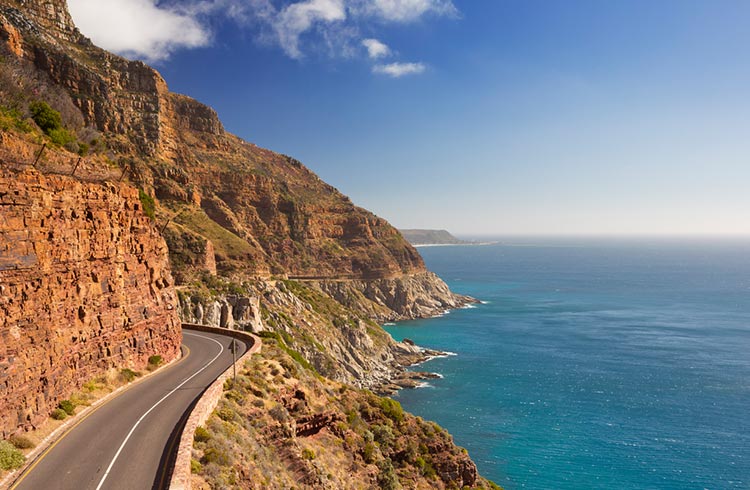
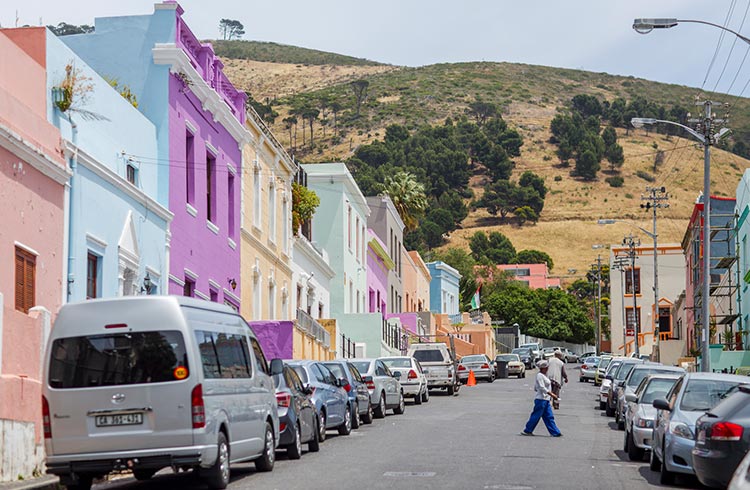
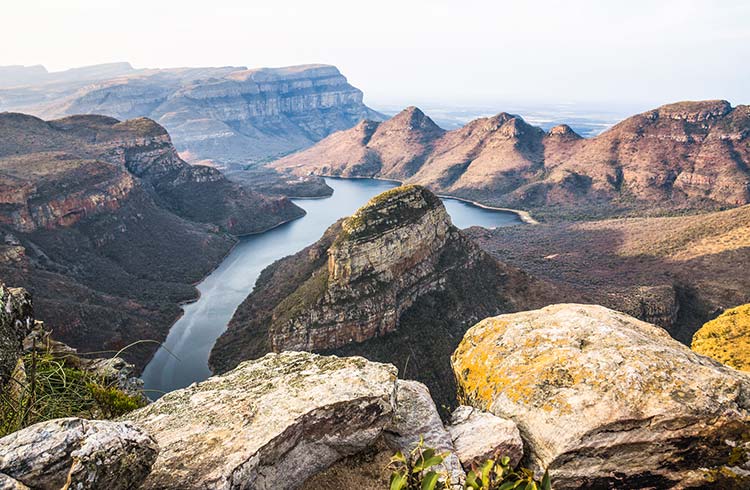
No Comments